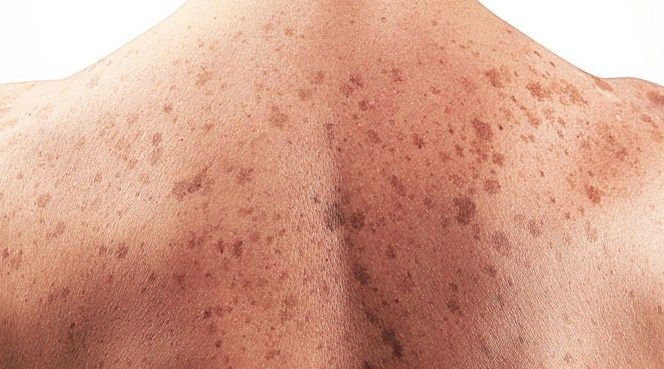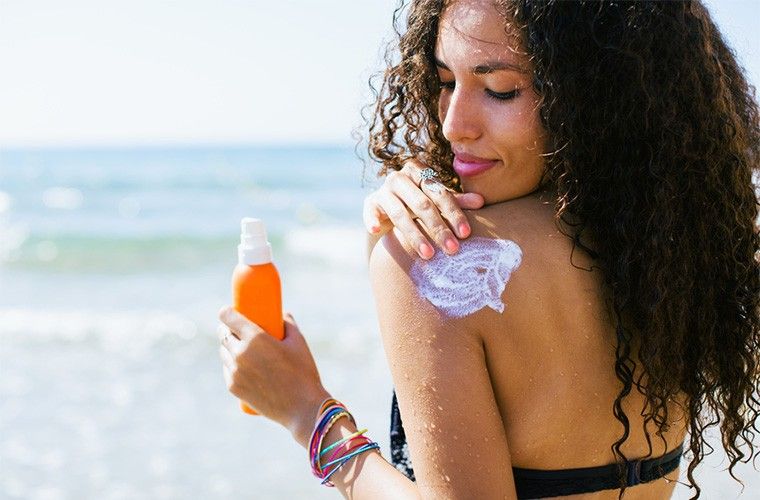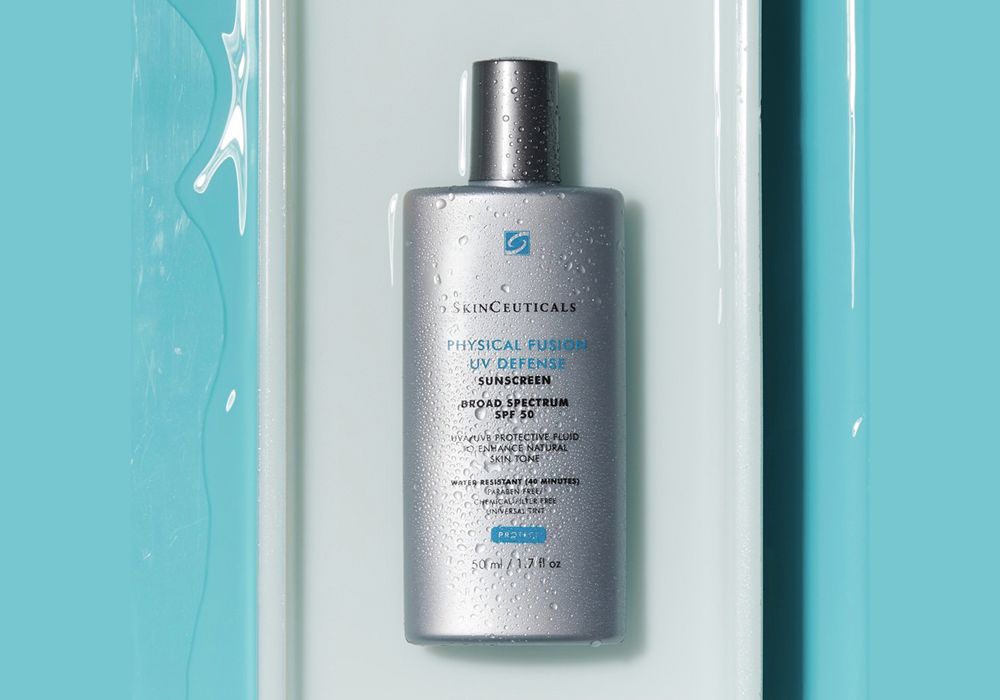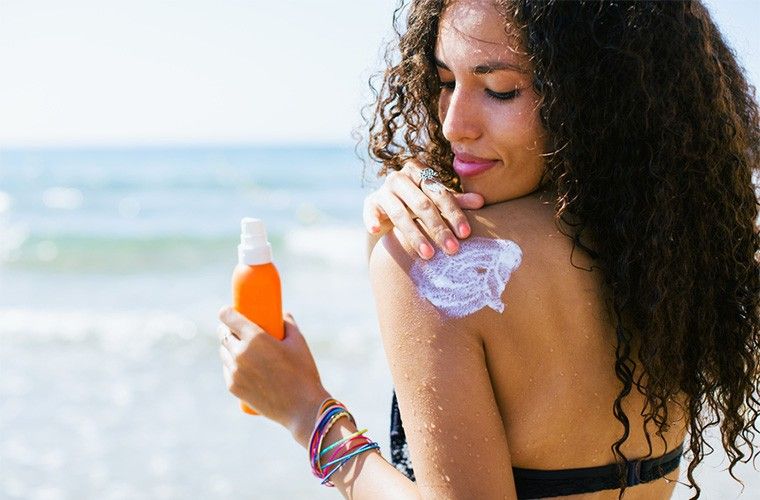Finally! Summer’s here and we’re getting excited: we use every excuse to celebrate on a terrace and all our weekends are spent by the pool. It was about time!
But, before you go crazy, we want to make sure you haven’t forgotten anything. Yup, we’re talking about sunscreen here.
You know it, we know it: it’s important to wear sunscreen every day. It protects your skin from sunburn but, most importantly, it blocks the very harmful UV rays. Even though you might not be the type of person who gets sunburns, your skin is damaged by the sun as soon as it’s exposed and damaged skin can lead to more serious problems (like cancer).
Skin, sun and sunscreens being quite hot topics right now (pun intended), we want to demystify these for you today by sharing 10 interesting facts you NEED to know
1. About 90% of skin aging is caused by the sun
UV rays cause premature ageing and are partly responsible for the appearance of riddles, wrinkles and age spots.
Source : http://themtnear.com/2017/08/senior-scene-skin-cancers/
2. Physical sunscreens > Chemical sunscreens
What’s the difference? Chemical sunscreens are, as you might have guessed, made with chemical ingredients. They’re only effective 20 minutes after application and can irritate the skin and/or create pimples on acne prone skin. Physical sunscreens, for their part, are made with active mineral-based ingredients, like zinc oxide. They block the UV rays completely, protect your skin as soon as you apply them and are less irritating. That’s why many parents turn to them for their babies. Above all, physical sunscreens are a greener and more responsible choice; unlike chemical sunscreens that contaminate water, destroying corals and killing fish, they are 100% natural.
3.FPS 30 and FPS 50 are quite the same for chemical sunscreens
Another reason to choose physical sunscreens!
4. Skin cancer is the most common cancer
Every day, about the third of all new cases of cancer in Canada are skin cancer, and that rate is still increasing. Some people think that chemical sunscreens are carcinogenic but, even if that’s true, they cause way less cancer than the exposure to UV rays. If you really want to avoid putting chemicals on your skin, you can simply choose physical sunscreens made with zinc oxide.
5. It’s not the FPS that counts, it’s the frequency of application
Sunscreen disappears with sweat, water and rubbing. Therefore, it’s important to apply it every 2 hours no matter what FPS you choose.
6. Tanning is a protection reaction
You might love that golden summer glow but did you know that it’s actually a reaction of your skin protecting itself? When your skin absorbs UV rays, it increases the activity and number of melanocytes that create the pigment melanin, trying to block damaging UV rays.
7. The sun’s dangerousness varies throughout the day
As you might know, the sun is the most intense between noon and 3 pm. If you can, avoid staying outside between those hours or wear enough sunscreen, making sure you add some every 2 hours. Source : https://www.wellandgood.com/good-looks/how-to-apply-sunscreen-and-how-not-to/
Source : https://www.wellandgood.com/good-looks/how-to-apply-sunscreen-and-how-not-to/
8. UV tanning devices are among the top cancer-causing factors
Along with plutonium, cigarettes and solar UV radiation, indoor tanning is one of the most carcinogenic factors and is dangerous to humans.
9. It’s essential to wear sunscreen all year long, not just during summer
Snow, sand and water increase the need for sunscreen as they reflect the sun’s rays. Therefore, no matter the season, it’s important to put sunscreen on any exposed skin.
10. Adults need about 1 ounce of sunscreen to cover their skin properly
To sum things up, sunscreen is your best ally when it comes to protecting your skin from the sun, from skin cancer and from skin ageing.
Our personal favorite is the FPS Fusion from Skinceuticals, a physical sunscreen with zinc oxide that protects your skin from both UVA and UVB rays.
We know, thinking of applying sunscreen every day isn’t easy but here’s a tip: place your sunscreen next to your toothbrush. This way, you’ll see it every morning and will think of applying some before you leave.
Now you’re perfectly ready for that Aperol spritz on the rooftop!
If you need any personal advice, feel free to contact us or come and visit us at Espace SKINS and we’ll be happy to help you choose the best products for you.
 Source : https://www.facebook.com/pg/SkinCeuticalsCA/photos/?ref=page_internal
Source : https://www.facebook.com/pg/SkinCeuticalsCA/photos/?ref=page_internal
RÉFÉRENCES
- https://www.canada.ca/fr/sante-publique/services/securite-soleil/cancer-peau.html
- https://www.cancer.org/cancer/skin-cancer/prevention-and-early-detection/sun-damage.html
- https://www.skincancer.org/skin-cancer-information/skin-cancer-facts
- https://www.aad.org/media/stats/prevention-and-care/sunscreen-faqs
- https://www.drdoppelt.com/physical-vs-chemical-sunscreen/
- http://theconversation.com/the-skin-is-a-very-important-and-our-largest-organ-what-does-it-do-91515
- https://www.unitypoint.org/desmoines/article.aspx?id=e0a22a4f-77c7-4a9a-b779-ed3c37956982
- https://my.clevelandclinic.org/health/articles/5240-sun-damage-protecting-yourself

